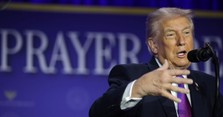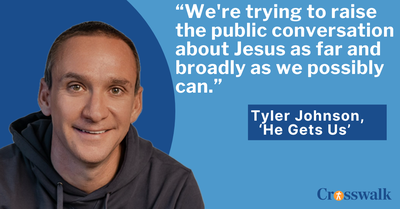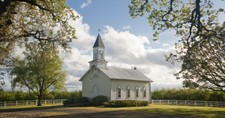
Trending Articles
Recent News
The NIMBY Church Seahawks’ Klint Kubiak Gifted Every Player a Bible for Christmas: ‘What Better Gift?’ AI ‘Billy Graham’ Videos Are Spreading Online and They Look Real, Pastor Warns Adoption is Beautiful, Surrogacy Isn't ‘Solo Mio’ Is a Creative, Charming, Hilarious, Family-Friendly Rom-Com What the 2026 National Prayer Breakfast Reminded Us Patriots’ Drake Maye Testifies: Helping People ‘Follow Jesus Christ Is What I'm Here for' 15 Family Movies Coming in 2026 to a Theater Near You Is there a True Story to History? Trump Announces $1,000 Newborn Investment Accounts Does Handwriting Still Matter? Sheriff Believes Savannah Guthrie’s Mother Is Still Alive as Ransom Note Is Investigated
Trending Articles
Recent News
The NIMBY Church Seahawks’ Klint Kubiak Gifted Every Player a Bible for Christmas: ‘What Better Gift?’ AI ‘Billy Graham’ Videos Are Spreading Online and They Look Real, Pastor Warns Adoption is Beautiful, Surrogacy Isn't ‘Solo Mio’ Is a Creative, Charming, Hilarious, Family-Friendly Rom-Com What the 2026 National Prayer Breakfast Reminded Us Patriots’ Drake Maye Testifies: Helping People ‘Follow Jesus Christ Is What I'm Here for' 15 Family Movies Coming in 2026 to a Theater Near You
Positive Stories
Celebrity
Video
Opinion
Church
Entertainment
Sports
Movies
Politics
Israel
Christian News Headlines - Breaking and Trending Religion News
Crosswalk Headlines - Christian news brought to you by a group of Christian writers and editors who are dedicated to creating a well-rounded look at what’s happening across the globe from a Christian worldview. Our vision is to inform and inspire productive discussion about the current events and online trends that shape our lives, our churches and our world.Crosswalk Headlines includes blog posts about current events and Christian media, breaking news, feature articles, and guest commentaries, many written by respected Christian thinkers.






































































